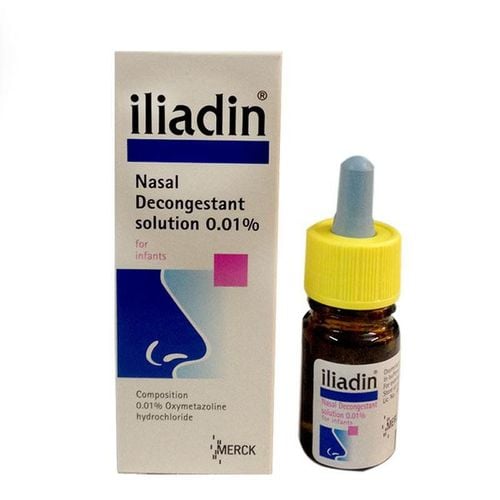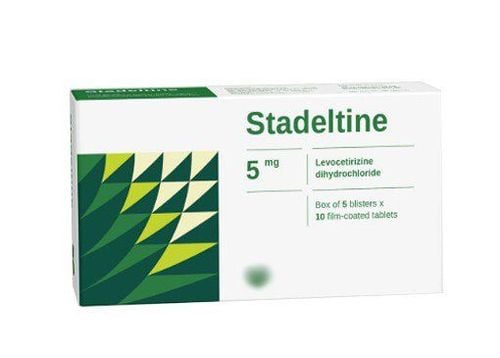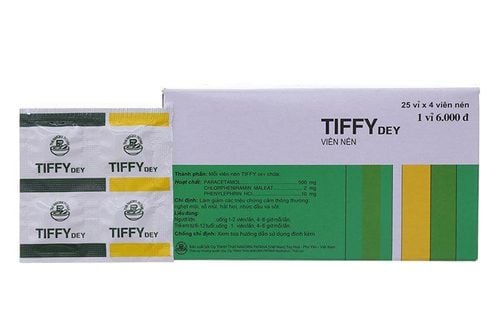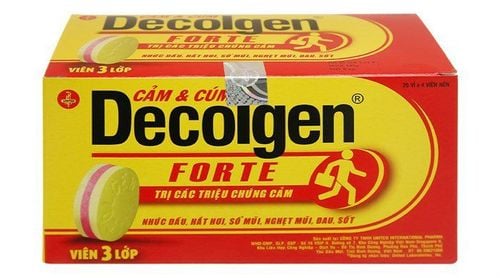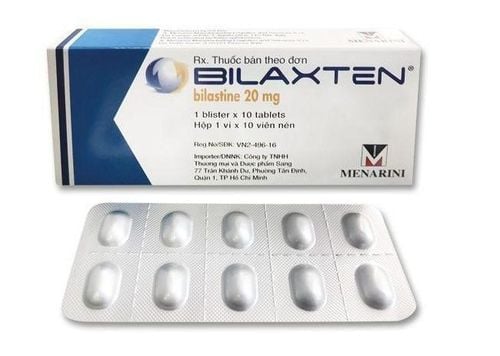Nasal congestion in newborns is a common issue that often worries mothers. While using nasal decongestants for infants can be effective, it also carries the risk of unwanted side effects. Therefore, when a newborn experiences nasal congestion, parents should thoroughly understand the benefits and potential side effects of nasal decongestant medications before administering them, ensuring they follow the proper instructions.
1. What is the purpose of nasal decongestants for newborns?
Nasal decongestants for newborns are used to temporarily relieve nasal congestion and sinus pain caused by infections, common colds, flu, or other respiratory conditions such as hay fever, allergies, bronchitis, etc. Nasal decongestants for newborns are available in various forms, typically as drops or sprays. Below are some nasal decongestant options that are recognized as safe and effective for use in newborns.
1.1 Saline Solution - The Most Common Nasal Decongestant for Newborns
Saline solution with a concentration of 0.9% Sodium Chloride (isotonic) is the most common nasal decongestant for newborns. It has the lowest disinfectant properties and is used to clean the nasal passages daily, helping to flush out mucus, bacteria, dust, viruses, etc., from the sinuses and nasal cavities, thereby helping to clear the airways of newborns with nasal congestion.
Saline solution is very safe, causes no burning or discomfort when applied to the nose, does not cause side effects, and is highly safe for use in newborns with nasal congestion. Therefore, mothers can use it regularly, 2 to 4 times a day for newborns with nasal congestion, helping to clean and protect the nasal mucosa, providing relief for the baby.
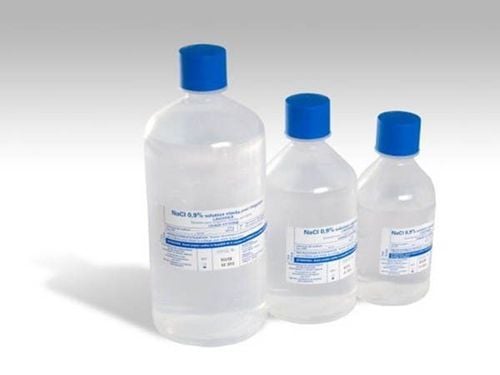
1.2 Antiseptic Medications for Treating Nasal Congestion in Newborns
Antiseptic medications used to relieve nasal congestion often contain silver nitrate (AgNO3). These medications can help reduce nasal congestion in newborns, but parents should consult with a pediatric specialist before use to avoid potential side effects.
1.3 Vasoconstrictor Medications (Naphazoline, Oxymetazoline, Ephedrine, etc.)
These nasal decongestants work by constricting the blood vessels in the nasal passages, helping to reduce nasal congestion. Vasoconstrictor medications are commonly used in the treatment of acute sinusitis, but they should not be used for more than 7 days.
Among these medications, Oxymetazoline 0.05% is the safest and least likely to cause side effects, making it suitable for use as a nasal decongestant for newborns. Additionally, Xylomethazoline 0.05% can also be used to treat nasal congestion in newborns, as it has a similar effect to Naphazoline but is less toxic and does not cause severe complications like Naphazoline.
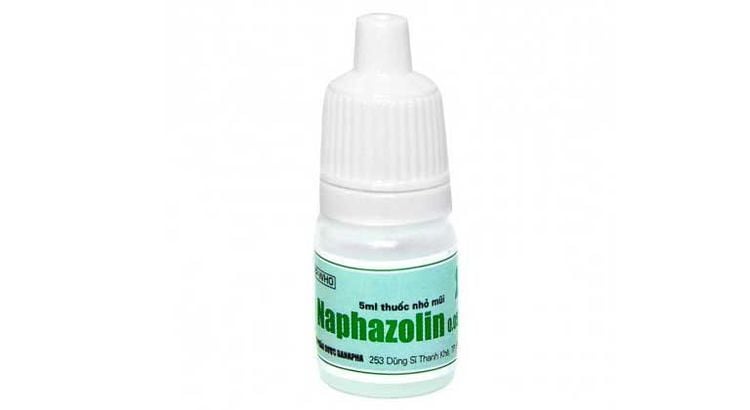
1.4 Vasodilator Medications (Ephedrine)
Ephedrine 1% is a potent vasodilator that helps clear nasal passages and can be used to treat nasal congestion in newborns. However, it should be used cautiously and only when necessary under the guidance of a doctor. It is recommended not to use vasodilators for more than 8 days, as prolonged use can lead to systemic poisoning, resulting in headaches, nausea, and insomnia in children.
1.5 Anti-inflammatory Nasal Sprays
Anti-inflammatory nasal sprays often contain corticosteroids combined with antibiotics and are used for chronic rhinosinusitis, allergic rhinitis, and conditions with symptoms like foul odors and thick, yellow or green mucus. The use of anti-inflammatory nasal sprays should be prescribed and monitored by a doctor, and parents should not purchase or use these products on their own for newborns with nasal congestion.

2. How to Use Nasal Decongestants for Newborns Properly?
Depending on the form of the medication, the method of using nasal decongestants for newborns will vary.
2.1 Nasal Drops
When using nasal decongestants in drop form for newborns, gently press the bottle with two fingers to release the drops. Avoid squeezing the bottle too hard or using your whole hand, as this could cause the medication to flow out in a stream, leading to an overdose. The doctor will provide specific guidance on the number of drops to be used, depending on the medication type, the baby’s age, and the health condition of the newborn.
2.2 Nasal Spray
Nasal decongestants for newborns in spray form are usually dosed by the number of sprays, but these are very rarely used for newborns with nasal congestion. If using a nasal spray, ensure that the nozzle is not inserted deeply into the nostrils. Instead, place it just at the entrance of the nose and spray gently in a fine mist onto the nasal mucosa.

3. What Are the Potential Side Effects of Nasal Decongestants for Newborns?
Using nasal decongestants to treat nasal congestion in newborns may cause side effects, including nausea, vomiting, difficulty sleeping, dizziness, headaches, or anxiety. If any of these side effects persist or worsen, or if there are signs of a severe allergic reaction such as a rash, itching, swelling of the face, tongue, throat, severe dizziness, or difficulty breathing, stop the medication and consult a doctor immediately.
To reduce the risk of serious side effects when using nasal decongestants for newborns, parents should follow the dosage and usage instructions provided by the doctor and closely monitor the newborn’s health. If symptoms persist despite using the medication, parents should take the child to a healthcare center for evaluation and treatment, to avoid prolonged nasal congestion that could seriously affect health and increase the risk of recurrence.
The Pediatrics Department at Vinmec International General Hospital is a trusted place for diagnosing and treating conditions commonly affecting newborns and young children, such as viral fevers, bacterial fevers, otitis media, bronchitis, pneumonia, and more. With modern equipment, sterile environments, and minimal risk of disease transmission, along with experienced doctors specializing in pediatric care, parents can be confident that their children will receive the best care.
To arrange an appointment, please call HOTLINE or make your reservation directly HERE. You may also download the MyVinmec app to schedule appointments faster and manage your reservations more conveniently.
Reference source: webmd.com





